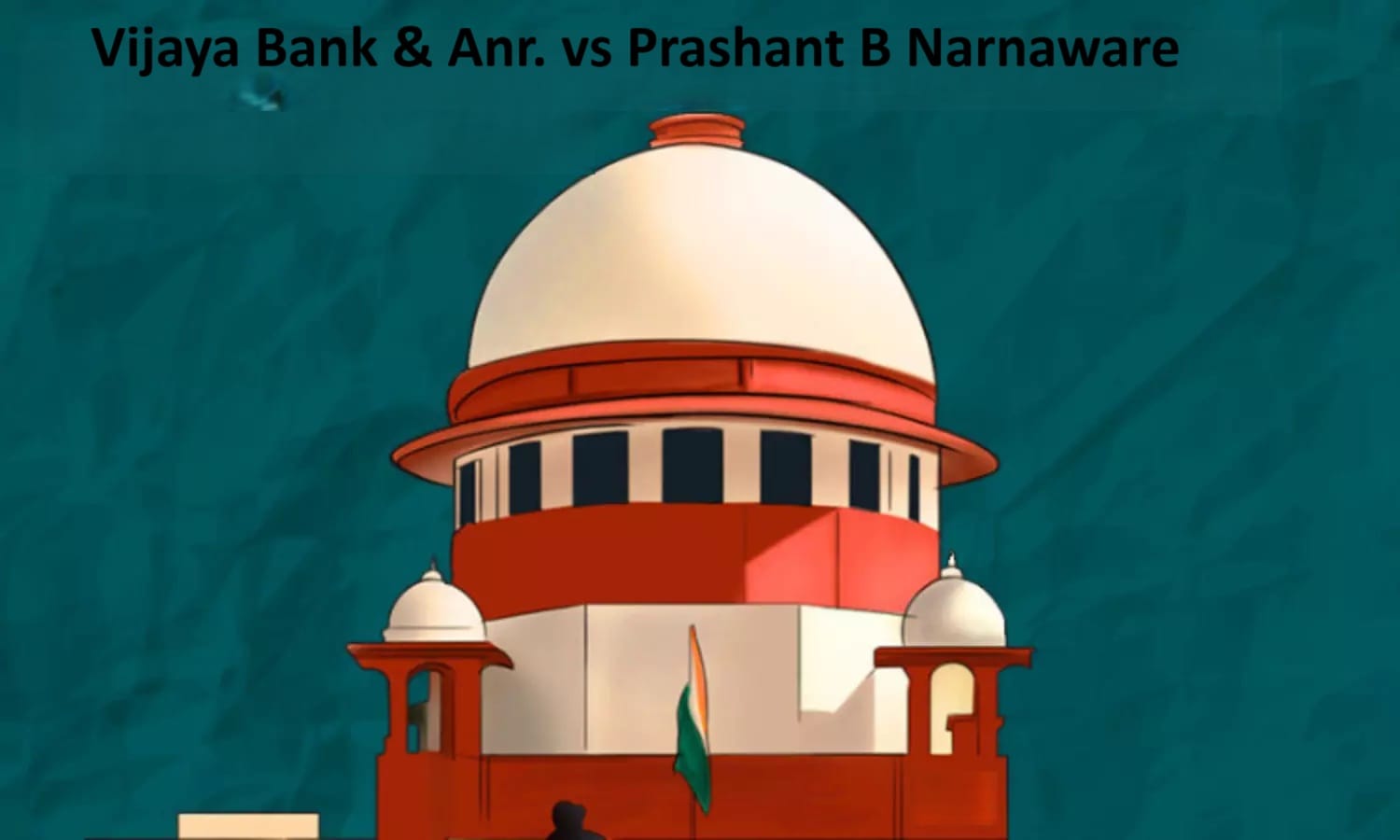NEWS & CASE LAW
Vijaya Bank & Anr. vs Prashant B Narnaware

Vijaya Bank & Anr. vs Prashant B Narnaware
Citation: 2025 SCC OnLine SC 1107
Coram: Justices P.S. Narasimha and Joymalya Bagchi
The Supreme Court in this case addressed key legal principles relating to standard form employment contracts, particularly focusing on exclusivity clauses and penalty clauses for premature resignation.
Background:
The case arose when an employee, after signing an employment bond with Vijaya Bank (a public sector bank) agreeing to serve for a minimum period of three years or pay ₹2 lakhs as liquidated damages upon early resignation, left the job before the period ended and joined another bank. The bank enforced the penalty clause, prompting the employee to file a writ petition. The High Court held the clause to be a restrictive trade practice under Section 27 of the Indian Contract Act, 1872, and struck it down. Aggrieved, the bank approached the Supreme Court.
Supreme Court's Ruling and Reasoning:
The Supreme Court reversed the High Court’s decision and upheld the validity of the clause. The bench laid down three key principles for interpreting standard form employment contracts:
1. Unequal Bargaining Power: Such contracts are prima facie indicative of unequal bargaining power since they are usually drafted by employers and offered to employees on a “take-it-or-leave-it” basis.
2. Judicial Scrutiny of Pleas of Coercion/Public Policy: Courts must carefully assess pleas of coercion, undue influence, or public policy in such contracts while keeping in mind the inherent power imbalance between employer and employee.
3. Burden of Proof: If an employee challenges a restrictive clause as being in restraint of trade or against public policy, the burden to prove its validity rests on the employer, not the employee.
The Court further clarified that standard form contracts are not automatically invalid merely due to their unilateral nature. To be invalidated, the employee must show that the contract or a clause therein is oppressive, unconscionable, or contrary to public policy. In conclusion, the Supreme Court upheld the validity of employment bonds and reasonable exclusivity clauses, provided they are not punitive, do not restrain future employment, and are justified in the context of the employer’s legitimate interests. The judgment provides significant clarity on employment law, standard contracts, and the limits of Section 27 of the Contract Act.



